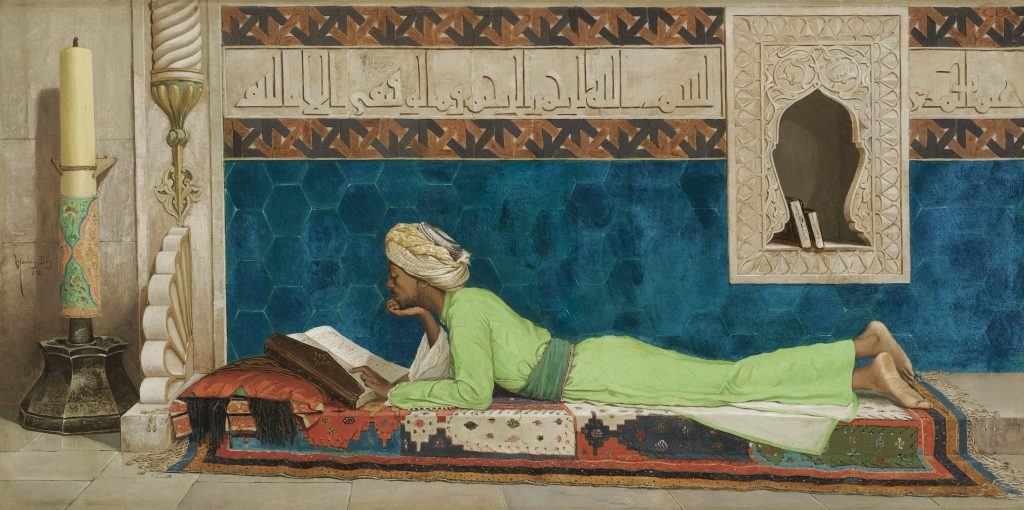São Paulo – The Brazilian International Relations Center (CEBRI) is accepting enrolments for the course Getting to Know the Middle East. Classes will be taught at the CEBRI headquarters in Gávea, Rio de Janeiro on October 25 and 26, from 9 am to 5 pm, including an opening class by course coordinator Monique Sochaczewski, a professor specializing in Brazil-Middle East relations.
The opening class will be an overview of historical and cultural aspects of the Middle East. “It will be a bird’s flight from the dawn of Islam, circa de 6th century, until our days,” said Sochaczewski. She also said that although the course is not historically oriented, it will begin with historical and cultural issues, because “one cannot understand the Middle East at all without learning about its history.”

The professor said the classes will include maps and artistic material from each of the periods at hand, like a painting by Ottoman artist Osman Hamdi Bey (pictured at the top of this story) to illustrate the Ottoman Empire, the differences between the Sunni and the Shia, etc. Books, films and series will also be used as reference.
“This particular painting (The Tortoise Trainer, pictured on the right) is emblematic, since it pertains to the final phase of Ottoman rule. It’s a satire of the sluggish, largely ineffective attempts at reforming the Empire. The man clad in Ottoman attire is holding a flute to try and coach the turtles at his feet. It’s as though he were trying to awaken the slow-moving, heavy animals – and failing, for the most part. Indeed, the Ottoman Empire fell apart, and the roots – and many of the problems – of modern-day Middle East hark back to that, and to the way national states emerged from that Empire’s ruins,” Sochaczewski explained.
The program also includes lectures on the Middle East in the Media, by GloboNews journalist Renée Castelo Branco, Aspects of Security and Defense, by Jorge Lasmar of Pontifícia Universidade Católica (PUC-MG), and Petroleum and Geopolitics, by Najad Khouri of Petrobras.
“We will approach media coverage of the region, especially in Brazil, which proves quite cautious and non-stereotypical, in the work of journalists Andrei Netto, Patrícia Campos Mello and Adriana Carranca, to name a few,” said Sochaczewski.
Lectures on the 26th will cover Brazil-Middle East Relations, with Guilherme Casarões of think tank Fundação Getulio Vargas (FGV-SP); Brazil-Middle East Economic Relations, with Felipe Haddock Lobo Goulart, of the Brazilian Foreign Ministry; Middle East Companies in Brazil (speaker to be confirmed); and the Outlook for Brazil-Middle East Studies and Relations, with Paulo Gabriel Hilu da Rocha Pinto of Universidade Federal Fluminense (UFF), also to be confirmed.
Prices are BRL 450 for students and CEBRI members and BRL 900 for the general public, including two coffee breaks and lunch each day. The 26th will see an Arab lunch served. “We usually get students from all walks of life: scholars, military officers, diplomats, diplomats, journalists and anyone interested in Middle East issues of any sort,” the coordinator said. Enrolment is available on the CEBRI website.
Quick facts
Getting to know the Middle East – CEBRI
October 25-26, 9am to 5pm
CEBRI – Rua Marquês de São Vicente, 336
Gávea, Rio de Janeiro
Enrolments open
BRL 450-BRL 900
Find out more/enroll: cebri.org.br
cursos@cebri.org.br
+55 21 2206-4402
Translated by Gabriel Pomerancblum




